Asteraceae
Also known as the Composite or Aster family.
Usually herbs, some shrubs.
- Inflorescence a head (a group of flowers surrounded by involucral bracts). Flowers perfect or imperfect, radially symmetrical or bilaterally symmetrical. Heads with tubular disk florets or flattened ray florets or both. Sepals absent, the calyx reduced to hairs or scales called pappus. Petals 5, fused. Stamens 5, stamens fused to petals, the anthers fused into a tube. Pistil compound, ovary inferior, carpels 2, placentation basal.
- Fruit an achene.
- Leaves simple or compound, opposite or alternate, without stipules.
- Probably the largest family of plants, with nearly 1000 genera and more than 20,000 species, worldwide.
The Asteraceae is the largest family in B.C., with 396 species and varieties. In Hitchcock and Cronquist the family is divided into 2 subfamiles and into 12 tribes.
Many genera are grown as ornamentals, such as Dahlia, Tagetes (marigold), Cosmos, Aster, Zinnia, Chrysanthemum, Callistephus (China aster), and others. Crop plants are rather few for the size of the family but include Lactuca (lettuce), Helianthus, (sunflower), Carthamnus (safflower), Cynara(artichoke), Tragopogon (salsify, oyster plant), Cichorium (chicory), and Artemisia (tarragon). Many Asteraceae are pernicious weeds.
| Helianthus (sunflower) |
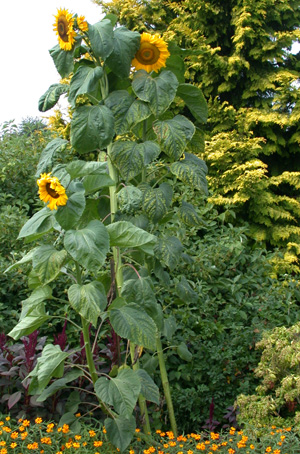 Helianthus plant |
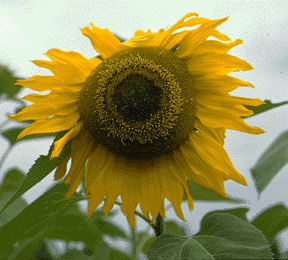
Helianthus Inflorescence
| Longitudinal section through a head: |
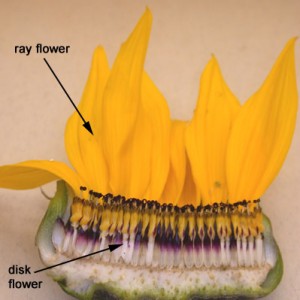 Helianthus, Longitudinal Cross Section |
| Note recepticular bract (RB) and the sepals (S): |
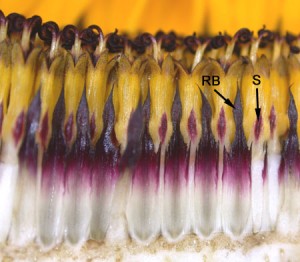 Helianthus, Longitudinal Section |
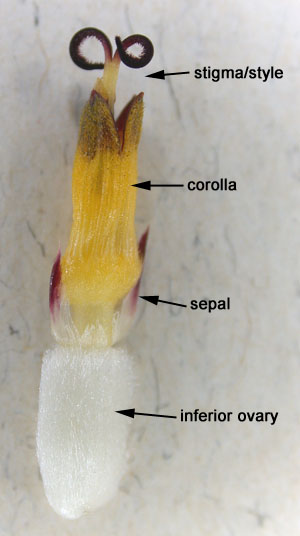
Individual Disk Floret
| What we think of as sunflower “seeds” are actually sunflower fruits. If you break open the fruit you will find the seed within (indicated with the arrow). |
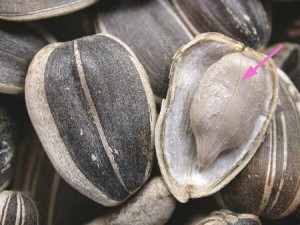 Sunflower Fruits |
| Echinacea |
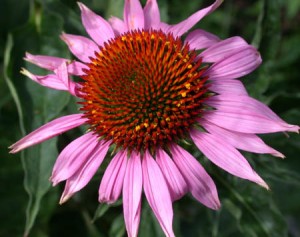 Echinacea Inflorescence |
| Longitudinal section through flower: |
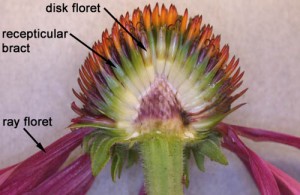 Longitudinal Section Through the Head of an Echinacea |
| And a closer look: |
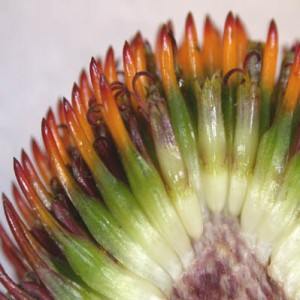 Longitudinal Section Through an Echinacea |
| Disk floret with recepticular bract: |
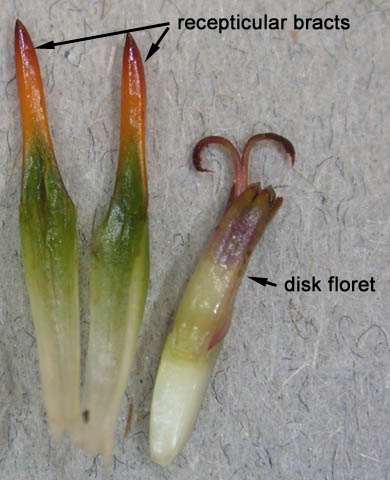 |
| A head which has gone to “fruit”. You can see the fruits (achenes) on which the pappus makes a short-toothed crown. |
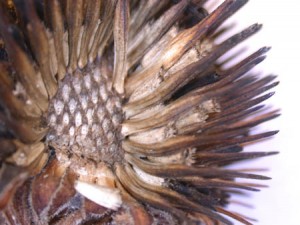 Echinacea floret, Gone to Fruit |
| Artichoke |
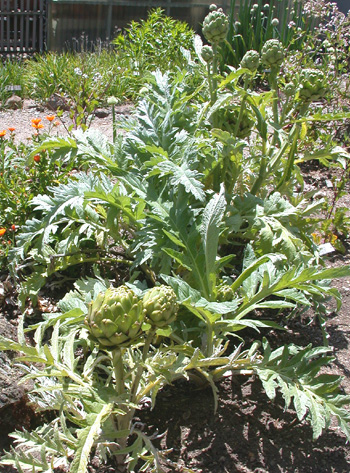 Artichoke Plant |
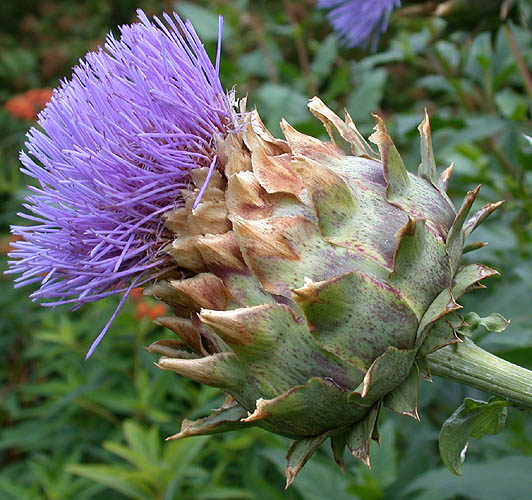
Close up of an Artichoke
| Cosmos: |
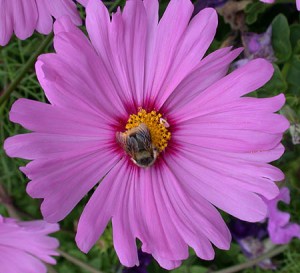 Cosmos Inflorescence |
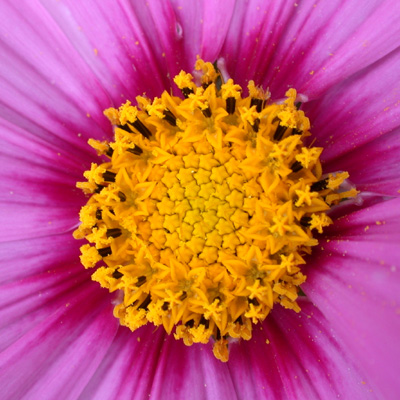 Cosmos Inflorescence, Close Up |
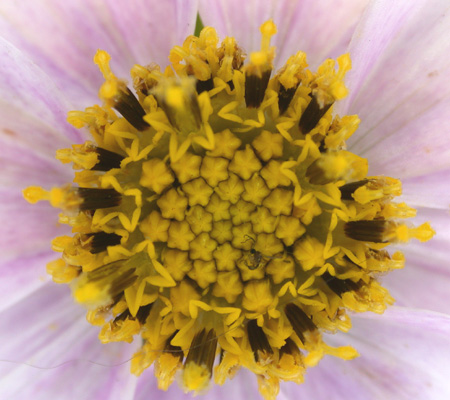 Zoomed-in, Even More |
From the beaches of the Queen Charlotte Islands:
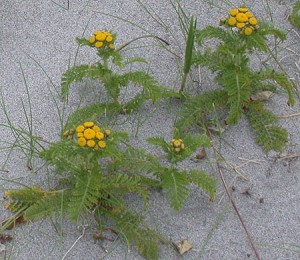
Tansy Plant
| This is a rayless head: |
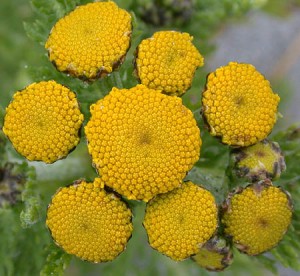 Rayless Head of a Tansy Inflorescence |
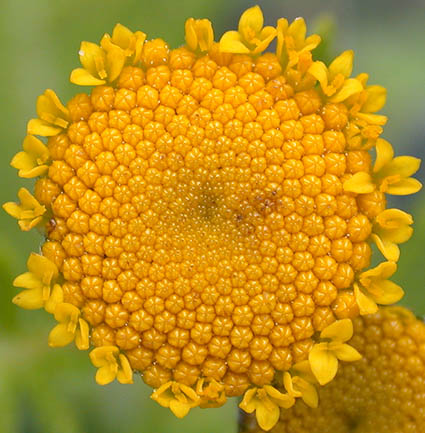
Rayless Head of a Tansy Inflorescence, Close Up
| Achillea (yarrow) |
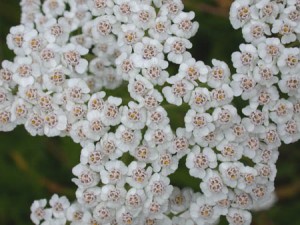 Achillea (yarrow) Inflorescence |
| An older inflorescence: |
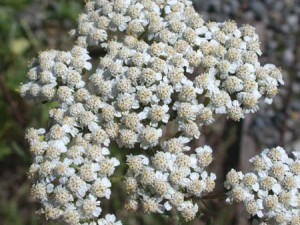 Achillea (yarrow) Inflorescence, More Mature |
| Anaphalis (Pearly-everlasting) |
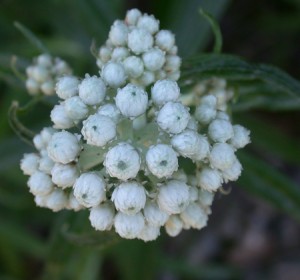 Pearly-Everlasting Inflorescence |
| Involucral bracts are papery. Do not confuse them for ray florets! They are partially concealing the disk florets. |
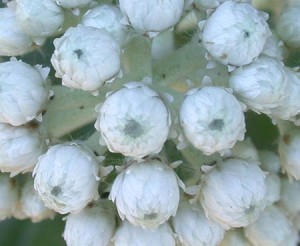 Pearly-Everlasting Inflorescence, Close Up |
| Inula. This picture was taken in the physick (medicinal) plant garden at the UBC Botanical Garden. The roots of the plant have been used as a medicine. |
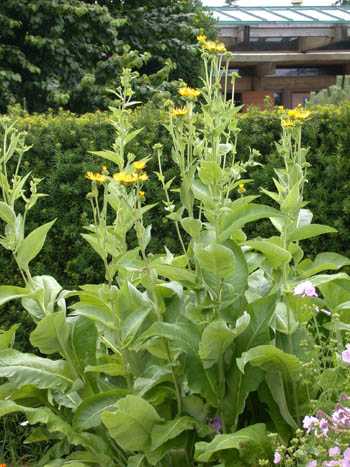 Inula Plant |
| Note the hairs on the leaf. |
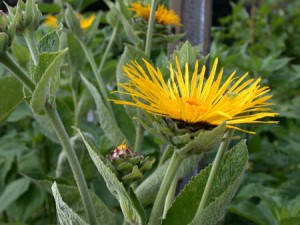 Inula, Close Up |
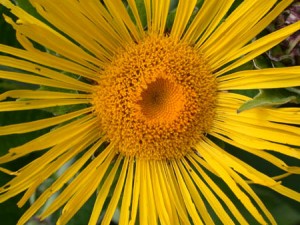 Inula, Close Up |
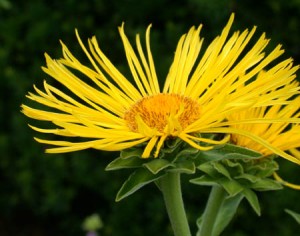 Inula, Close Up |
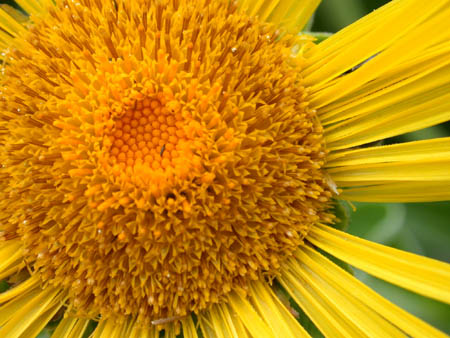
Inula, Close Up
| Centaurea (knapweed). The marginal flowers of this plant are enlarged and sterile. |
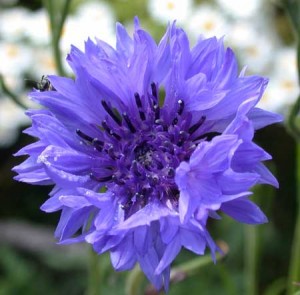 Knapweed Inflorescence |
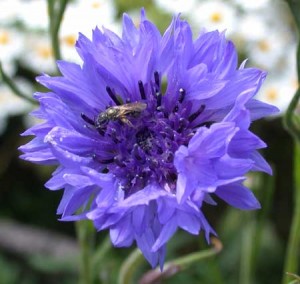 Knapweed Inflorescence, With Pollinator |
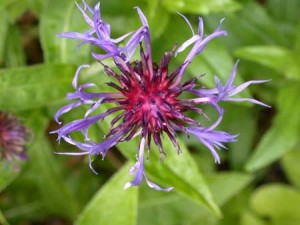 Knapweed Inflorescence, Petals Lost |
| Taraxacum (dandelion) – |
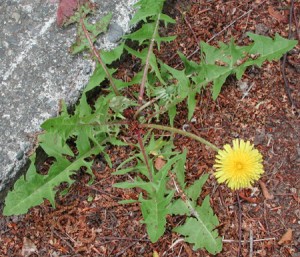 Dandelion |
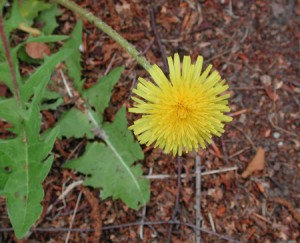 Dandelion, Close Up of Inflorescence |
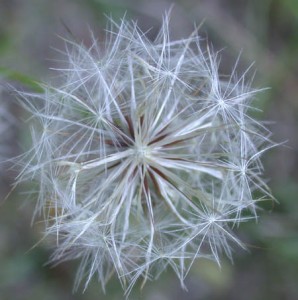 Dandelion, Mature Inflorescence |


































